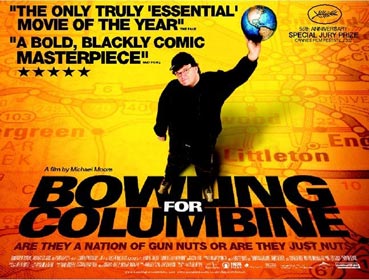Went to see Steve Henry (of HHCL fame) a while back and he talked about the difficulty of changing the way society feels about social issues and the fact that advertising can be a good way to do this. As I recall, he talked about how most issues, say women’s rights or the need for protection from HIV, start small and they need to go mainstream in order to become socially ‘normal’. So, if you can get an ad which confronts a social issue in the centre break of Coronation Street (as it was back then), you’re kind of hi-jacking people’s attention and putting the issue in front of them. In doing this you provoke them to consider own thoughts and feelings toward the topic, both good and bad, and this can accelerate the debate and social accpetance of that issue.
The example he cited was the Fuji Film work that HHCL did back in the day:
This all seems to make sense, but I think that it’s very easy to get it wrong – that you communicate a controversial message but it all it does is reinforce the opinions of those that agree with you and excludes the very people whose opinion you’re trying to change. This seems to be the fundamental principle behind newspapers as Guardian readers get fed left-wing liberal views and Daily Mail readers get the opposite. (Maybe they should swap editors for a week and see what happens).
I think a dismal attempt at trying to change people’s opinions for the better, despite using movies, are Michael Moore films. If you take Bowling for Columbine, it’s a film attacking gun ownership and the NRA. Yet, it’s so direct in its attack of gun culture I think it backfires. It sort of says ‘if you own a gun you’re an idiot’. If you owned a gun would you go and see it? Would you pay $10 and spend two hours of you time having some guy tell you that you’re a fool? I doubt it. But if you already think people who own guns are idiots, you’re going to lap it up. So, although I assume that Michael Moore would have wanted his movie to change opinions of those with the guns, but I doubt that it did.

So, I think you have to be cleverer about how you get your message out there in order to change people’s opinions on an issue, rather than just reinforce existing ways of thinking.
One way is through humour. There was an Muslim comedian talking on the radio about using humour and in doing so, playing on people’s prejudices in a way that makes the audience realise that Muslims are normal and not all would-be-terrorists. (John in NZ talks about a Maori comedian who does the same and is attributed with doing a great deal to further Maori/white relations).
Beyond humour, the same comedian was asked what would be the best thing that could happen for the general public to have a more rounded/less ‘terrorist’ view of the Muslim community? He said the equivalent of the Cosby Show. This was because it, for the first time, portrayed African-American’s in the same light as middle-class whites – it was sit-com about a doctor, his wife and their kids doing normal stuff.
What does this mean for sustainability? I guess it than there are many ways and means to get a sustainability message out there. At the moment however, it all feels a bit ‘preaching to the converted’ – like Bowling For Columbine. It’s all about left-wing liberals congratulating each other for doing their recycling, having a staycation and buying organic, rather than a more confrontational message that’s either in the centre-break of Corrie or even better, a storyline in Corrie.
However, it’s been done before, so it can be done again.